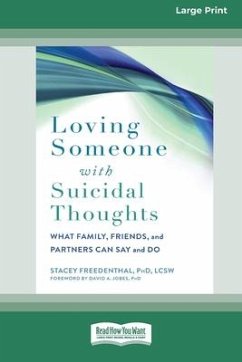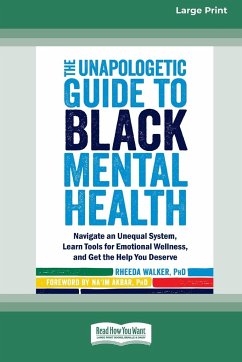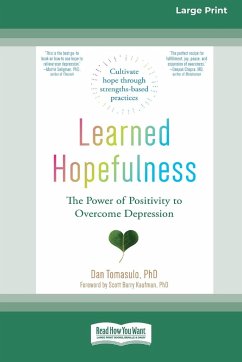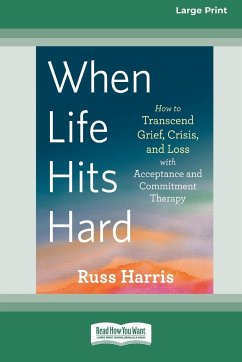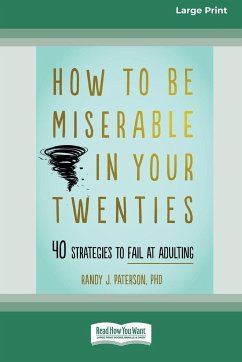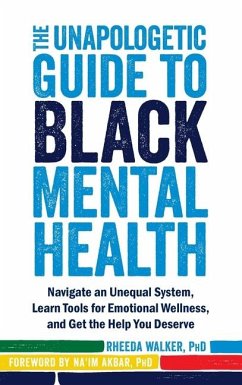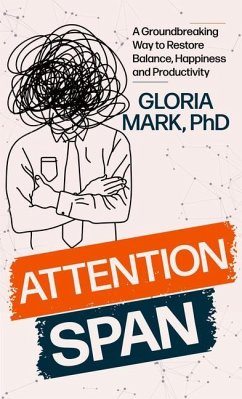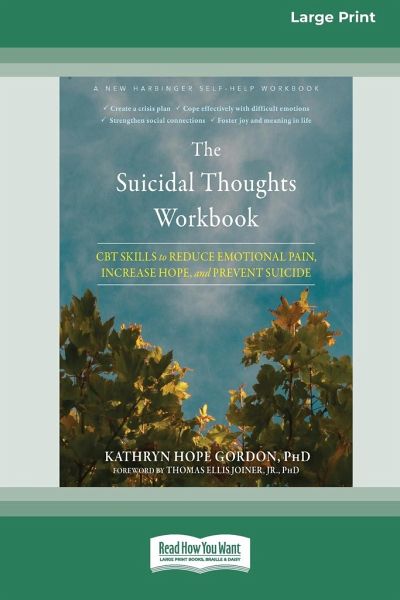
The Suicidal Thoughts Workbook
CBT Skills to Reduce Emotional Pain, Increase Hope, and Prevent Suicide [Large Print 16 Pt Edition]

PAYBACK Punkte
14 °P sammeln!
This important, evidence-based workbook helps those with suicidal thoughts create a crisis plan and establish a safe environment in the event that their thoughts become too much to bear. Readers will also find tools to reduce psychological pain and increase hope; strengthen social connections; take part in meaningful events to reduce suicidal thoughts and behavior; develop resiliency in the face of future suicidal thoughts or behavior; and foster a sense of safety, psychological strength, and mental health.





